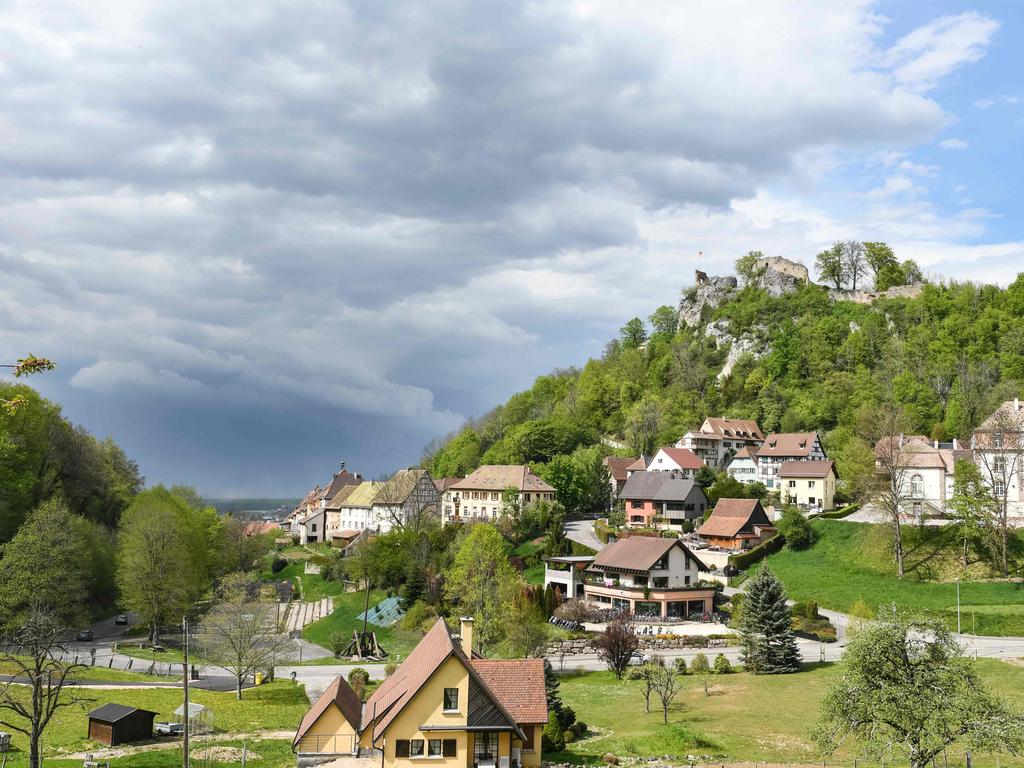Populist, green and liberal parties set for sweeping success in European elections
Europe’s heart and soul is at stake this weekend as more than 400 million people vote — and the results could have devastating consequences.
More than 400 million people will make their voices heard across Europe this weekend in an election being pitched as a battle for the heart and soul of the continent.
There has been huge groundswell of support for right-wing populist parties across the continent — much of it driven by anger towards the EU — as voters go to the polls in the European parliamentary elections.
As UK Prime Minister Theresa May announced she will stand down on June 7 after failing to deliver Brexit, the anti-EU sentiment behind the 2016 vote is reflected across the continent.
Anti-immigration movements are expected to score huge gains across key states, including France, Italy, Britain, Spain, Germany, the Netherlands, Hungary, Denmark and Poland.
Voting began in Britain and the Netherlands on Thursday, with full results expected on Sunday for the 751 seat parliament that decides on legislation, public spending and major projects for the bloc.
This time, the surge in populist parties has set the stage for a showdown between far-right groups who want to slash immigration and boost national governments and integrationists who want a closer relationship between European states.
Chatham House associate fellow Matt Goodwin said “Europe is fragmenting”, with the two major parties set to lose their majority for the first time in history and smaller parties on the rise, including liberals, greens, and the far right.
“The unwritten laws of Europe are really being overturned,” he told news.com.au. “(In) the countries that were traditionally quite stable or have had a history of fascism or nazisim, we’re going to see a lot of very significant populist movements breaking through, and that’s really going to feed into this broader debate about the culture and identity challenges that are facing Europe.”
“Lots of voters want to talk about borders and security and community and actually now we’re not in an arena where people just want to talk about the economy and jobs. I think these elections are going to be pivotal for the future of the European Union.”

The elections follow a surge in populist sentiment across the continent, including support for Marine Le Pen’s rebranded National Rally in France, Italy’s hard right The League and populist Five Star Movement. Spain has nationalist party Vox, while Germany has Alternative for Deutschland. In the Netherlands, Forum for Democracy is on the rise, while Austria has the far right Freedom Party and Hungary has Fidesz.
Many are characterised by nationalist rhetoric, anti-immigration sentiment and have youthful candidates to appeal to a new generation of voters on social media. In Belgium, 26-year-old Dries Van Langenhove is among the top picks on the list for the far-right party Vlaams Belang. In France, 23-year-old Jordan Bardella is the figurehead for Marine Le Pen’s movement, having joined the party at 16 and led its youth wing before.

« Pour nous, l’Europe est un espace géographique bien défini, une civilisation fière de ses racines chrétiennes, romaines et grecques, qui doit enfin se réapproprier son héritage inépuisable, enfin réaffirmer la primauté de sa culture sur son sol ! » #Yonne #Le26MaiVotezRN pic.twitter.com/qICnxAAR6A
— Jordan Bardella (@J_Bardella) May 21, 2019
Institute for Strategic Dialogue researcher Julia Ebner told the AP: “The far right has made a very explicit effort to pander to younger audiences. They’ve essentially rebranded themselves.
“Far-right political parties have been most active in engaging with social media users,” she said, adding that they have also shaped existing grievances with unique language and reference points.
Europe Elects founder Tobias Gerhard Schminke said while the right wing “spike” of 2016 has not continued at the same pace, far-right seats are tipped to rise from 130 to around 180 in elections this weekend. Nigel Farage’s Brexit party is tipped to become the largest single issue party in the EU parliament, adding to pressure for a hard Brexit.
Fears of fragmentation have put EU leaders on notice, with French President Emmanuel Macron pushing to ensure Brexit is resolved by October 31 to avoid it “polluting” debate any further. In March, the French leader issued an open letter to EU citizens, saying “never since the second world war has Europe been so essential. Yet never has Europe been in such danger.”
“Retreating into nationalism offers nothing; it is rejection without an alternative. And this is the trap that threatens the whole of Europe: the anger mongers, backed by fake news, promise anything and everything,” he said.




